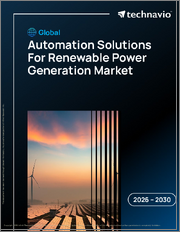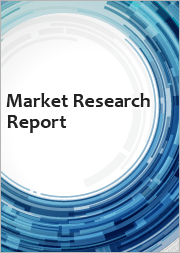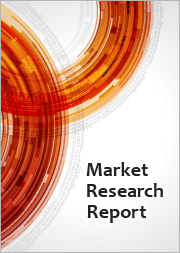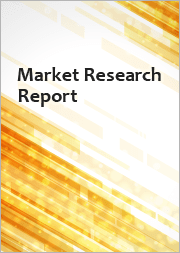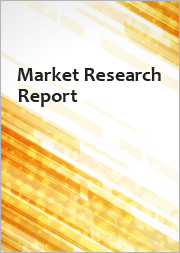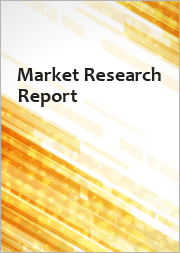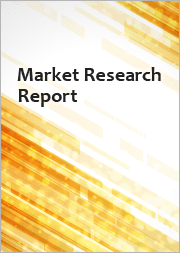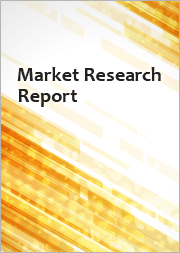
|
시장보고서
상품코드
1795330
재생에너지 투자 시장Renewable Energy Investment |
||||||
재생에너지 투자 세계 시장은 2030년까지 6,684억 달러에 달할 전망
2024년에 4,456억 달러로 추정되는 재생에너지 투자 세계 시장은 2024년부터 2030년까지 CAGR 7.0%로 성장하여 2030년에는 6,684억 달러에 달할 것으로 예측됩니다. 이 보고서에서 분석한 부문 중 하나인 자산 금융은 CAGR 5.6%를 기록하며 분석 기간 종료시에는 3,870억 달러에 달할 것으로 예상됩니다. 소규모 분산 용량 부문의 성장률은 분석 기간 동안 CAGR 9.1%로 추정됩니다.
미국 시장은 추정 1,171억 달러, 중국은 CAGR 6.9%로 성장 예측
미국의 재생에너지 투자 시장은 2024년에 1,171억 달러로 추정됩니다. 세계 2위 경제 대국인 중국은 2030년까지 1,077억 달러의 시장 규모에 달할 것으로 예측되며, 분석 기간인 2024-2030년 CAGR은 6.9%를 기록할 것으로 예상됩니다. 기타 주목할 만한 지역별 시장으로는 일본과 캐나다가 있고, 분석 기간 동안 CAGR은 각각 6.3%와 6.1%로 예측됩니다. 유럽에서는 독일이 CAGR 5.8%로 성장할 것으로 예측됩니다.
세계의 재생에너지 투자 시장 - 주요 동향과 촉진요인 정리
재생에너지 투자가 기존 전력 융자를 능가하는 이유는 무엇일까?
재생에너지 투자는 세계 에너지 전환 전략의 핵심으로 태양광, 풍력, 수력, 지열, 바이오 에너지 프로젝트에 대한 자금 유입이 빠르게 진행되고 있습니다. 2023년 세계 재생에너지 투자액은 5,000억 달러를 넘어 사상 처음으로 화석연료에 대한 지출을 넘어설 것입니다. 구조적 원동력으로는 기후변화 문제 대응, 기술 비용 절감, 청정에너지 사업의 수익성 향상 등이 있습니다. 기관투자자, 정부 및 기업 구매자들은 탄소 리스크를 줄이고 ESG 기준에 부합하는 포트폴리오를 구축하기 위해 재생 인프라로 자본을 이동하고 있습니다.
설비규모가 큰 태양광과 해상 풍력은 확장성, 장기적인 수익률 안정성, 정책적 지원에 힘입어 투자의 주축이 되고 있습니다. 옥상 태양광, 커뮤니티 에너지 프로젝트, 분산형 풍력발전 시스템도 지역에 기반을 둔 자금을 모으고 있습니다. 자본 유입은 더 이상 OECD 국가에만 국한되지 않습니다. 중국, 인도, 베트남, 브라질, 사하라 이남 아프리카 일부 지역은 민관협력(PPP), 소버린 그린본드, 다자간 개발금융에 힘입어 재생에너지 투자의 핫스팟으로 떠오르고 있습니다. 재생에너지에 대한 투자는 더 이상 단순한 환경 헤지가 아니라 장기적인 현금흐름과 인플레이션으로부터 보호되는 수익률을 보장하는 재무적 필수 투자로 자리매김하고 있습니다.
어떤 금융상품과 모델이 재생에너지 투자를 구성하고 있는가?
재생에너지에 대한 투자는 현재 주식, 채권, 그린본드, 수익증권, 인프라 펀드 등 다양한 금융상품을 통해 이루어지고 있습니다. 자기자본은 프로젝트 개발자, 독립발전사업자(IPP), 상장된 재생에너지 기업을 통해 확충될 것입니다. 부채금융은 개발은행이나 녹색대출의 틀을 통해 보조금을 받는 경우가 많으며, 대규모 인프라 프로젝트에 저비용의 자금을 제공합니다. Yieldcos는 운영 중인 재생에너지 자산을 고배당 수익률의 자산으로 묶어 기관투자자에게 변동성이 낮은 장기 현금흐름에 대한 노출을 제공합니다.
그린본드와 기후변화 채권은 발행액과 투자자 참여가 빠르게 증가하고 있습니다. 2023년 한 해에만 전 세계적으로 2,500억 달러 이상의 그린본드가 발행될 예정이며, 그 중 대부분이 재생에너지 프로젝트에 할당될 것입니다. 민관 투자 플랫폼도 부상하고 있습니다. 양허적 공적 자본이 민간 투자자의 리스크를 줄여주는 블렌디드 파이낸스 구조는 위험도가 높은 국가에서의 재생에너지 투자를 가능하게 합니다. 기업형 PPA는 고정가격 인수와 금융성을 제공함으로써 전력회사 규모의 프로젝트에 대한 투자 사례를 변화시키고, 연금기금, 보험사, 정부계 펀드를 재생에너지 분야로 끌어들이고 있습니다.
자본 유입을 형성하는 지역, 기술, 이해관계자는?
아시아태평양은 전 세계 재생에너지 투자 규모를 주도하고 있으며, 중국이 전 세계 태양광 및 풍력 투자의 거의 50%를 차지하고 있습니다. 인도는 풍력 및 태양광 하이브리드 프로젝트와 그린 수소 허브를 국가적 인센티브와 송전망 인프라 구축을 통해 확대하고 있습니다. 유럽은 북해, 발트해, 이베리아 반도의 해상 풍력 클러스터에 대한 대규모 투자로 재정적, 기술적으로 선두를 달리고 있습니다. 미국 시장은 인플레이션 감소법(IRA)에 따라 급성장하고 있으며, 전례 없는 청정에너지 세액공제, 직접 지불 옵션, 국내 제조 인센티브가 개방되어 있습니다.
기술 측면에서 태양광발전은 모듈성, 빠른 도입, 잘 구축된 공급망으로 인해 여전히 가장 자본적으로 매력적인 분야입니다. 해상 풍력발전은 그 확장성과 계통연계 가능성으로 인해 Ø&rsted, Shell, TotalEnergies 등 에너지 메이저들로부터 막대한 투자를 유치하고 있습니다. 축전지와 그린 수소는 선점효과를 노리는 벤처 캐피털과 사모펀드 자본을 끌어들이고 있는 신흥 분야입니다. 기관투자자, 인프라 펀드, 정부 투자자들은 재생에너지 자산을 현금흐름을 창출하는 탄력적인 인프라로 간주하고, 포트폴리오의 대부분을 재생에너지 자산에 투자하고 있습니다.
재생에너지 투자 시장의 성장을 촉진하는 요인은 무엇일까?
재생에너지 투자 시장의 성장은 기후변화 정책 시행, 금융 혁신, 리스크 완화 수단, 기술 비용 곡선, 청정 전력 수요 증가에 따른 것입니다. 국가결정기여(NDC), 탄소가격제, 화석연료 퇴출 운동은 화력발전에서 재생에너지로 자본을 몰아넣고 있습니다. 투자자들 또한 기후변화 관련 재무공개를 요구하고 있으며, 탄소 전환 리스크를 포트폴리오 결정에 반영할 것을 요구하고 있습니다.
재생에너지 기술의 비용 곡선은 지속적으로 하락하고 있으며, 새로운 화석연료 발전과 경쟁하거나 그보다 더 저렴해지고 있습니다. 에너지 안보에 대한 우려, 특히 러시아-우크라이나 분쟁과 같은 지정학적 혼란은 각국 정부에 재생에너지 도입을 가속화하도록 촉구하고 있습니다. 규제의 안정성, 장기 조달 메커니즘, 오프 테이크 가격의 가시성을 통해 뱅커빌리티가 향상되고 자본비용이 절감됩니다. 또한, 디지털화, 기후변화 금융, 분산형 발전 모델의 융합은 투자 영역을 메가 프로젝트에서 커뮤니티 규모와 하이브리드 시스템까지 확장하고 있습니다. 이러한 추세와 맞물려 재생에너지 투자가 21세기 인프라 금융의 중심축으로 확고히 자리매김하고 있습니다.
부문
유형(자산 금융, 소규모 분산형 발전용량)
조사 대상 기업 사례
- Acciona SA
- Adani Green Energy Limited
- Aquila Capital
- Bloom Energy
- Brookfield Renewable Partners
- Canadian Solar Inc.
- Clearway Energy
- Constellation Energy Corporation
- Daqo New Energy Corp.
- EDP Renovaveis(EDPR)
- Enel Green Power
- ENGIE
- First Solar, Inc.
- GE Vernova
- Iberdrola SA
- JinkoSolar Holding Co., Ltd.
- Lightsource bp
- Mainstream Renewable Power
- NextEra Energy, Inc.
- Orsted A/S
- ReNew Energy Global Plc
- Sungrow Power Supply Co., Ltd.
- Vestas Wind Systems A/S
AI 통합
Global Industry Analysts는 검증된 전문가 컨텐츠와 AI 툴을 통해 시장과 경쟁 정보를 혁신하고 있습니다.
Global Industry Analysts는 일반적인 LLM 및 업계 고유의 SLM 쿼리를 따르는 대신 비디오 기록, 블로그, 검색 엔진 조사, 방대한 양의 기업, 제품/서비스, 시장 데이터 등 세계 전문가로부터 수집한 컨텐츠 리포지토리를 구축했습니다.
관세 영향 계수
Global Industry Analysts는 본사 소재지, 제조거점, 수출입(완제품 및 OEM)을 기준으로 기업의 경쟁력 변화를 예측하고 있습니다. 이러한 복잡하고 다면적인 시장 역학은 매출원가(COGS) 증가, 수익성 하락, 공급망 재편 등 미시적, 거시적 시장 역학 중에서도 특히 경쟁사들에게 영향을 미칠 것으로 예상됩니다.
목차
제1장 조사 방법
제2장 주요 요약
- 시장 개요
- 주요 기업
- 시장 동향과 촉진요인
- 세계 시장 전망
제3장 시장 분석
- 미국
- 캐나다
- 일본
- 중국
- 유럽
- 프랑스
- 독일
- 이탈리아
- 영국
- 기타 유럽
- 아시아태평양
- 기타 지역
제4장 경쟁
KSM 25.09.01Global Renewable Energy Investment Market to Reach US$668.4 Billion by 2030
The global market for Renewable Energy Investment estimated at US$445.6 Billion in the year 2024, is expected to reach US$668.4 Billion by 2030, growing at a CAGR of 7.0% over the analysis period 2024-2030. Asset Finance, one of the segments analyzed in the report, is expected to record a 5.6% CAGR and reach US$387.0 Billion by the end of the analysis period. Growth in the Small Distributed Capacity segment is estimated at 9.1% CAGR over the analysis period.
The U.S. Market is Estimated at US$117.1 Billion While China is Forecast to Grow at 6.9% CAGR
The Renewable Energy Investment market in the U.S. is estimated at US$117.1 Billion in the year 2024. China, the world's second largest economy, is forecast to reach a projected market size of US$107.7 Billion by the year 2030 trailing a CAGR of 6.9% over the analysis period 2024-2030. Among the other noteworthy geographic markets are Japan and Canada, each forecast to grow at a CAGR of 6.3% and 6.1% respectively over the analysis period. Within Europe, Germany is forecast to grow at approximately 5.8% CAGR.
Global Renewable Energy Investment Market - Key Trends & Drivers Summarized
Why Is Renewable Energy Investment Outpacing Conventional Power Financing?
Renewable energy investment has become the cornerstone of global energy transition strategies, with capital flowing rapidly toward solar, wind, hydro, geothermal, and bioenergy projects. In 2023, global investments in renewables reached over USD 500 billion, outpacing spending on fossil fuels for the first time in history. The structural drivers include climate commitments, declining technology costs, and the growing profitability of clean energy ventures. Institutional investors, governments, and corporate buyers are increasingly shifting capital toward renewable infrastructure to mitigate carbon risk and align portfolios with ESG criteria.
Utility-scale solar and offshore wind dominate the investment landscape, driven by scalability, long-term yield stability, and policy support. Rooftop solar, community energy projects, and distributed wind systems are also attracting localized financing. Capital inflows are no longer limited to OECD countries. China, India, Vietnam, Brazil, and parts of Sub-Saharan Africa are becoming renewable investment hotspots, supported by public-private partnerships (PPPs), sovereign green bonds, and multilateral development finance. Renewable investments are no longer just environmental hedges-they’re financial imperatives with long-duration cash flows and inflation-protected returns.
What Financial Instruments and Models Are Structuring Renewable Energy Investment?
Renewable investments are now facilitated through diverse financial instruments including equity, debt, green bonds, yieldcos, and infrastructure funds. Equity capital is deployed through project developers, independent power producers (IPPs), and listed renewables companies. Debt financing, often subsidized through development banks or green loan frameworks, provides lower-cost capital for large infrastructure projects. Yieldcos, which bundle operating renewable assets into dividend-yielding vehicles, offer institutional investors exposure to long-term cash flows with lower volatility.
Green bonds and climate bonds are rapidly growing in both issuance and investor participation. In 2023 alone, more than USD 250 billion in green bonds were issued globally, a substantial share of which was allocated to renewable projects. Public-private investment platforms are also emerging. Blended finance mechanisms-where concessional public capital reduces the risk for private investors-are enabling renewable investments in higher-risk jurisdictions. Corporate PPAs are transforming the investment case for utility-scale projects by providing fixed-price offtake and bankability, thereby attracting pension funds, insurance companies, and sovereign wealth funds into the renewable sector.
Which Regions, Technologies, and Stakeholders Are Shaping Capital Flows?
Asia-Pacific leads global renewable investment volumes, with China accounting for nearly 50% of global solar and wind investments. India is scaling up wind-solar hybrid projects and green hydrogen hubs with state-backed incentives and grid infrastructure upgrades. Europe remains a financial and technological leader, with large investments in offshore wind clusters in the North Sea, Baltic region, and Iberian Peninsula. The U.S. market is surging under the Inflation Reduction Act (IRA), which has unlocked unprecedented clean energy tax credits, direct pay options, and domestic manufacturing incentives.
On the technology front, solar PV remains the most capital-attractive segment due to its modularity, fast deployment, and established supply chains. Offshore wind is drawing mega-investments from energy majors like Ørsted, Shell, and TotalEnergies, given its scalability and grid injection potential. Battery storage and green hydrogen are emerging sectors attracting VC and private equity capital for first-mover advantages. Institutional investors, infrastructure funds, and sovereign investors are increasingly allocating a greater portion of portfolios toward renewable assets, viewing them as resilient, cash-flow-generating infrastructure.
What Factors Are Driving the Growth of the Renewable Energy Investment Market?
The growth in the Renewable Energy Investment market is driven by climate policy enforcement, financial innovation, risk mitigation instruments, technology cost curves, and escalating demand for clean electricity. Nationally Determined Contributions (NDCs), carbon pricing mechanisms, and fossil fuel divestment movements are pushing capital away from thermal power and into renewables. Investors are also responding to climate-related financial disclosures, which now require carbon transition risk to be integrated into portfolio decisions.
Renewable technologies continue to fall on their cost curves, making them competitive with or cheaper than new fossil capacity. Energy security concerns-especially following geopolitical disruptions like the Russia-Ukraine conflict-have prompted governments to accelerate renewable buildouts. Regulatory stability, long-term procurement mechanisms, and visibility on offtake pricing are improving bankability and reducing capital costs. The convergence of digitalization, climate finance, and distributed generation models is also expanding the investment frontier beyond megaprojects into community-scale and hybrid systems. Together, these trends are cementing renewable energy investment as a central pillar of 21st-century infrastructure financing.
SCOPE OF STUDY:
The report analyzes the Renewable Energy Investment market in terms of units by the following Segments, and Geographic Regions/Countries:
Segments:
Type (Asset Finance, Small Distributed Capacity)
Geographic Regions/Countries:
World; United States; Canada; Japan; China; Europe (France; Germany; Italy; United Kingdom; and Rest of Europe); Asia-Pacific; Rest of World.
Select Competitors (Total 42 Featured) -
- Acciona SA
- Adani Green Energy Limited
- Aquila Capital
- Bloom Energy
- Brookfield Renewable Partners
- Canadian Solar Inc.
- Clearway Energy
- Constellation Energy Corporation
- Daqo New Energy Corp.
- EDP Renovaveis (EDPR)
- Enel Green Power
- ENGIE
- First Solar, Inc.
- GE Vernova
- Iberdrola SA
- JinkoSolar Holding Co., Ltd.
- Lightsource bp
- Mainstream Renewable Power
- NextEra Energy, Inc.
- Orsted A/S
- ReNew Energy Global Plc
- Sungrow Power Supply Co., Ltd.
- Vestas Wind Systems A/S
AI INTEGRATIONS
We're transforming market and competitive intelligence with validated expert content and AI tools.
Instead of following the general norm of querying LLMs and Industry-specific SLMs, we built repositories of content curated from domain experts worldwide including video transcripts, blogs, search engines research, and massive amounts of enterprise, product/service, and market data.
TARIFF IMPACT FACTOR
Our new release incorporates impact of tariffs on geographical markets as we predict a shift in competitiveness of companies based on HQ country, manufacturing base, exports and imports (finished goods and OEM). This intricate and multifaceted market reality will impact competitors by increasing the Cost of Goods Sold (COGS), reducing profitability, reconfiguring supply chains, amongst other micro and macro market dynamics.
TABLE OF CONTENTS
I. METHODOLOGY
II. EXECUTIVE SUMMARY
- 1. MARKET OVERVIEW
- Influencer Market Insights
- World Market Trajectories
- Tariff Impact on Global Supply Chain Patterns
- Renewable Energy Investment - Global Key Competitors Percentage Market Share in 2025 (E)
- Competitive Market Presence - Strong/Active/Niche/Trivial for Players Worldwide in 2025 (E)
- 2. FOCUS ON SELECT PLAYERS
- 3. MARKET TRENDS & DRIVERS
- Expansion of Climate Finance Vehicles Spurs Institutional Investment in Renewables
- Favorable Interest Rate Environment Strengthens Capital Access for Renewable Projects
- Public Green Bond Issuances Throw the Spotlight on Scalable Renewable Financing
- Corporate Decarbonization Commitments Drive Direct Investment in Clean Energy Assets
- Multilateral Development Bank (MDB) Programs Accelerate Renewable Deployment in LMICs
- Private Equity and Infrastructure Funds Target Renewables as Long-Term Yield Assets
- Integration of Environmental Risk Metrics Into Investment Portfolios Fuels Allocation Shifts
- ESG Regulations in Financial Markets Encourage Transparency and Green Investment Disclosure
- Energy Transition Roadmaps From Oil and Gas Firms Expand Clean Energy Portfolios
- Co-Investment Models and Syndicated Lending Structures Support Mega-Project Development
- Rising Demand for Energy Access in Emerging Markets Strengthens Impact Investment Appeal
- Digital Investment Platforms Democratize Access to Community-Scale Renewable Projects
- High Demand for Energy Storage Integration Enhances Bankability of Variable Renewables
- Public-Private Partnerships De-Risk Large-Scale Renewable Energy Ventures
- Corporate Power Purchase Agreements (PPAs) Act as Anchors for Investment Returns
- Technology De-Risking and Modularization Support Scalability of Renewable Startups
- Increased M&A Activity in Clean Energy Sector Consolidates Market Positioning
- Carbon Pricing Mechanisms Create Additional Revenue Streams for Investors
- Renewable Energy Investment Funds Expand Retail Investor Participation
- Government Guarantees and Credit Enhancement Tools Promote Private Sector Confidence
- 4. GLOBAL MARKET PERSPECTIVE
- TABLE 1: World Renewable Energy Investment Market Analysis of Annual Sales in US$ Million for Years 2014 through 2030
- TABLE 2: World Recent Past, Current & Future Analysis for Renewable Energy Investment by Geographic Region - USA, Canada, Japan, China, Europe, Asia-Pacific and Rest of World Markets - Independent Analysis of Annual Sales in US$ Million for Years 2024 through 2030 and % CAGR
- TABLE 3: World Historic Review for Renewable Energy Investment by Geographic Region - USA, Canada, Japan, China, Europe, Asia-Pacific and Rest of World Markets - Independent Analysis of Annual Sales in US$ Million for Years 2014 through 2023 and % CAGR
- TABLE 4: World 16-Year Perspective for Renewable Energy Investment by Geographic Region - Percentage Breakdown of Value Sales for USA, Canada, Japan, China, Europe, Asia-Pacific and Rest of World Markets for Years 2014, 2025 & 2030
- TABLE 5: World Recent Past, Current & Future Analysis for Asset Finance by Geographic Region - USA, Canada, Japan, China, Europe, Asia-Pacific and Rest of World Markets - Independent Analysis of Annual Sales in US$ Million for Years 2024 through 2030 and % CAGR
- TABLE 6: World Historic Review for Asset Finance by Geographic Region - USA, Canada, Japan, China, Europe, Asia-Pacific and Rest of World Markets - Independent Analysis of Annual Sales in US$ Million for Years 2014 through 2023 and % CAGR
- TABLE 7: World 16-Year Perspective for Asset Finance by Geographic Region - Percentage Breakdown of Value Sales for USA, Canada, Japan, China, Europe, Asia-Pacific and Rest of World for Years 2014, 2025 & 2030
- TABLE 8: World Recent Past, Current & Future Analysis for Small Distributed Capacity by Geographic Region - USA, Canada, Japan, China, Europe, Asia-Pacific and Rest of World Markets - Independent Analysis of Annual Sales in US$ Million for Years 2024 through 2030 and % CAGR
- TABLE 9: World Historic Review for Small Distributed Capacity by Geographic Region - USA, Canada, Japan, China, Europe, Asia-Pacific and Rest of World Markets - Independent Analysis of Annual Sales in US$ Million for Years 2014 through 2023 and % CAGR
- TABLE 10: World 16-Year Perspective for Small Distributed Capacity by Geographic Region - Percentage Breakdown of Value Sales for USA, Canada, Japan, China, Europe, Asia-Pacific and Rest of World for Years 2014, 2025 & 2030
III. MARKET ANALYSIS
- UNITED STATES
- Renewable Energy Investment Market Presence - Strong/Active/Niche/Trivial - Key Competitors in the United States for 2025 (E)
- TABLE 11: USA Recent Past, Current & Future Analysis for Renewable Energy Investment by Type - Asset Finance and Small Distributed Capacity - Independent Analysis of Annual Sales in US$ Million for the Years 2024 through 2030 and % CAGR
- TABLE 12: USA Historic Review for Renewable Energy Investment by Type - Asset Finance and Small Distributed Capacity Markets - Independent Analysis of Annual Sales in US$ Million for Years 2014 through 2023 and % CAGR
- TABLE 13: USA 16-Year Perspective for Renewable Energy Investment by Type - Percentage Breakdown of Value Sales for Asset Finance and Small Distributed Capacity for the Years 2014, 2025 & 2030
- CANADA
- TABLE 14: Canada Recent Past, Current & Future Analysis for Renewable Energy Investment by Type - Asset Finance and Small Distributed Capacity - Independent Analysis of Annual Sales in US$ Million for the Years 2024 through 2030 and % CAGR
- TABLE 15: Canada Historic Review for Renewable Energy Investment by Type - Asset Finance and Small Distributed Capacity Markets - Independent Analysis of Annual Sales in US$ Million for Years 2014 through 2023 and % CAGR
- TABLE 16: Canada 16-Year Perspective for Renewable Energy Investment by Type - Percentage Breakdown of Value Sales for Asset Finance and Small Distributed Capacity for the Years 2014, 2025 & 2030
- JAPAN
- Renewable Energy Investment Market Presence - Strong/Active/Niche/Trivial - Key Competitors in Japan for 2025 (E)
- TABLE 17: Japan Recent Past, Current & Future Analysis for Renewable Energy Investment by Type - Asset Finance and Small Distributed Capacity - Independent Analysis of Annual Sales in US$ Million for the Years 2024 through 2030 and % CAGR
- TABLE 18: Japan Historic Review for Renewable Energy Investment by Type - Asset Finance and Small Distributed Capacity Markets - Independent Analysis of Annual Sales in US$ Million for Years 2014 through 2023 and % CAGR
- TABLE 19: Japan 16-Year Perspective for Renewable Energy Investment by Type - Percentage Breakdown of Value Sales for Asset Finance and Small Distributed Capacity for the Years 2014, 2025 & 2030
- CHINA
- Renewable Energy Investment Market Presence - Strong/Active/Niche/Trivial - Key Competitors in China for 2025 (E)
- TABLE 20: China Recent Past, Current & Future Analysis for Renewable Energy Investment by Type - Asset Finance and Small Distributed Capacity - Independent Analysis of Annual Sales in US$ Million for the Years 2024 through 2030 and % CAGR
- TABLE 21: China Historic Review for Renewable Energy Investment by Type - Asset Finance and Small Distributed Capacity Markets - Independent Analysis of Annual Sales in US$ Million for Years 2014 through 2023 and % CAGR
- TABLE 22: China 16-Year Perspective for Renewable Energy Investment by Type - Percentage Breakdown of Value Sales for Asset Finance and Small Distributed Capacity for the Years 2014, 2025 & 2030
- EUROPE
- Renewable Energy Investment Market Presence - Strong/Active/Niche/Trivial - Key Competitors in Europe for 2025 (E)
- TABLE 23: Europe Recent Past, Current & Future Analysis for Renewable Energy Investment by Geographic Region - France, Germany, Italy, UK and Rest of Europe Markets - Independent Analysis of Annual Sales in US$ Million for Years 2024 through 2030 and % CAGR
- TABLE 24: Europe Historic Review for Renewable Energy Investment by Geographic Region - France, Germany, Italy, UK and Rest of Europe Markets - Independent Analysis of Annual Sales in US$ Million for Years 2014 through 2023 and % CAGR
- TABLE 25: Europe 16-Year Perspective for Renewable Energy Investment by Geographic Region - Percentage Breakdown of Value Sales for France, Germany, Italy, UK and Rest of Europe Markets for Years 2014, 2025 & 2030
- TABLE 26: Europe Recent Past, Current & Future Analysis for Renewable Energy Investment by Type - Asset Finance and Small Distributed Capacity - Independent Analysis of Annual Sales in US$ Million for the Years 2024 through 2030 and % CAGR
- TABLE 27: Europe Historic Review for Renewable Energy Investment by Type - Asset Finance and Small Distributed Capacity Markets - Independent Analysis of Annual Sales in US$ Million for Years 2014 through 2023 and % CAGR
- TABLE 28: Europe 16-Year Perspective for Renewable Energy Investment by Type - Percentage Breakdown of Value Sales for Asset Finance and Small Distributed Capacity for the Years 2014, 2025 & 2030
- FRANCE
- Renewable Energy Investment Market Presence - Strong/Active/Niche/Trivial - Key Competitors in France for 2025 (E)
- TABLE 29: France Recent Past, Current & Future Analysis for Renewable Energy Investment by Type - Asset Finance and Small Distributed Capacity - Independent Analysis of Annual Sales in US$ Million for the Years 2024 through 2030 and % CAGR
- TABLE 30: France Historic Review for Renewable Energy Investment by Type - Asset Finance and Small Distributed Capacity Markets - Independent Analysis of Annual Sales in US$ Million for Years 2014 through 2023 and % CAGR
- TABLE 31: France 16-Year Perspective for Renewable Energy Investment by Type - Percentage Breakdown of Value Sales for Asset Finance and Small Distributed Capacity for the Years 2014, 2025 & 2030
- GERMANY
- Renewable Energy Investment Market Presence - Strong/Active/Niche/Trivial - Key Competitors in Germany for 2025 (E)
- TABLE 32: Germany Recent Past, Current & Future Analysis for Renewable Energy Investment by Type - Asset Finance and Small Distributed Capacity - Independent Analysis of Annual Sales in US$ Million for the Years 2024 through 2030 and % CAGR
- TABLE 33: Germany Historic Review for Renewable Energy Investment by Type - Asset Finance and Small Distributed Capacity Markets - Independent Analysis of Annual Sales in US$ Million for Years 2014 through 2023 and % CAGR
- TABLE 34: Germany 16-Year Perspective for Renewable Energy Investment by Type - Percentage Breakdown of Value Sales for Asset Finance and Small Distributed Capacity for the Years 2014, 2025 & 2030
- ITALY
- TABLE 35: Italy Recent Past, Current & Future Analysis for Renewable Energy Investment by Type - Asset Finance and Small Distributed Capacity - Independent Analysis of Annual Sales in US$ Million for the Years 2024 through 2030 and % CAGR
- TABLE 36: Italy Historic Review for Renewable Energy Investment by Type - Asset Finance and Small Distributed Capacity Markets - Independent Analysis of Annual Sales in US$ Million for Years 2014 through 2023 and % CAGR
- TABLE 37: Italy 16-Year Perspective for Renewable Energy Investment by Type - Percentage Breakdown of Value Sales for Asset Finance and Small Distributed Capacity for the Years 2014, 2025 & 2030
- UNITED KINGDOM
- Renewable Energy Investment Market Presence - Strong/Active/Niche/Trivial - Key Competitors in the United Kingdom for 2025 (E)
- TABLE 38: UK Recent Past, Current & Future Analysis for Renewable Energy Investment by Type - Asset Finance and Small Distributed Capacity - Independent Analysis of Annual Sales in US$ Million for the Years 2024 through 2030 and % CAGR
- TABLE 39: UK Historic Review for Renewable Energy Investment by Type - Asset Finance and Small Distributed Capacity Markets - Independent Analysis of Annual Sales in US$ Million for Years 2014 through 2023 and % CAGR
- TABLE 40: UK 16-Year Perspective for Renewable Energy Investment by Type - Percentage Breakdown of Value Sales for Asset Finance and Small Distributed Capacity for the Years 2014, 2025 & 2030
- REST OF EUROPE
- TABLE 41: Rest of Europe Recent Past, Current & Future Analysis for Renewable Energy Investment by Type - Asset Finance and Small Distributed Capacity - Independent Analysis of Annual Sales in US$ Million for the Years 2024 through 2030 and % CAGR
- TABLE 42: Rest of Europe Historic Review for Renewable Energy Investment by Type - Asset Finance and Small Distributed Capacity Markets - Independent Analysis of Annual Sales in US$ Million for Years 2014 through 2023 and % CAGR
- TABLE 43: Rest of Europe 16-Year Perspective for Renewable Energy Investment by Type - Percentage Breakdown of Value Sales for Asset Finance and Small Distributed Capacity for the Years 2014, 2025 & 2030
- ASIA-PACIFIC
- Renewable Energy Investment Market Presence - Strong/Active/Niche/Trivial - Key Competitors in Asia-Pacific for 2025 (E)
- TABLE 44: Asia-Pacific Recent Past, Current & Future Analysis for Renewable Energy Investment by Type - Asset Finance and Small Distributed Capacity - Independent Analysis of Annual Sales in US$ Million for the Years 2024 through 2030 and % CAGR
- TABLE 45: Asia-Pacific Historic Review for Renewable Energy Investment by Type - Asset Finance and Small Distributed Capacity Markets - Independent Analysis of Annual Sales in US$ Million for Years 2014 through 2023 and % CAGR
- TABLE 46: Asia-Pacific 16-Year Perspective for Renewable Energy Investment by Type - Percentage Breakdown of Value Sales for Asset Finance and Small Distributed Capacity for the Years 2014, 2025 & 2030
- REST OF WORLD
- TABLE 47: Rest of World Recent Past, Current & Future Analysis for Renewable Energy Investment by Type - Asset Finance and Small Distributed Capacity - Independent Analysis of Annual Sales in US$ Million for the Years 2024 through 2030 and % CAGR
- TABLE 48: Rest of World Historic Review for Renewable Energy Investment by Type - Asset Finance and Small Distributed Capacity Markets - Independent Analysis of Annual Sales in US$ Million for Years 2014 through 2023 and % CAGR
- TABLE 49: Rest of World 16-Year Perspective for Renewable Energy Investment by Type - Percentage Breakdown of Value Sales for Asset Finance and Small Distributed Capacity for the Years 2014, 2025 & 2030






